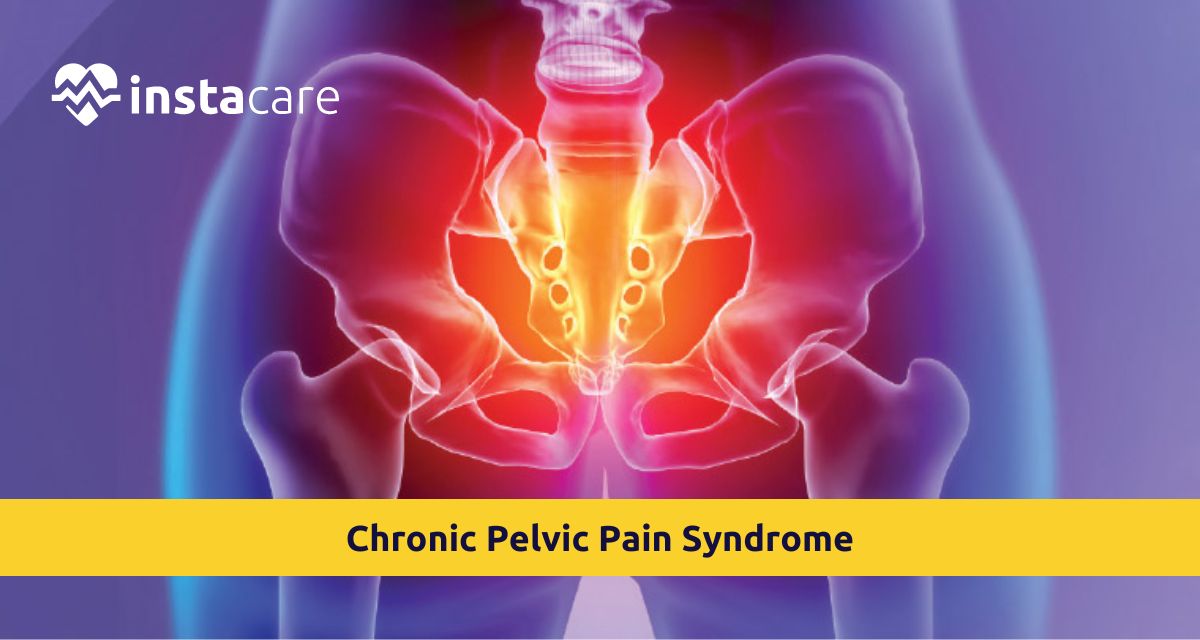The abbreviation for Chronic Pelvic Pain Syndrome is CPPS. This is a complex and occasionally little-known disease that varies greatly throughout individuals, especially in women. The symptoms associated with this medical condition might differ from person to person, making diagnosis and treatment challenging. Being a complex problem, CPPS may severely affect a person's psychological aspect, emotional state, ability to go about their daily lives, and state of health.
This page aims to provide a general
overview of CPPS, including information on its symptoms, potential causes,
diagnosing techniques, and available treatments. Thus, our goal is to present a
thorough understanding of CPPS so that the affected person can live a more
comfortable and higher-quality life.
What Is The Syndrome Of Chronic Pelvic Pain?
On the other hand, patients who experience
pelvic pain symptoms for longer than six months without a recognized medical
reason are said to have chronic pelvic pain syndrome. Those fall into two main
categories:
- Prostatitis: This kind of illness, which is specific to men, is characterized by inflammation of the prostate tissue.
- Bladder Pain Syndrome/Interstitial: Cystitis is the abbreviated term for this condition (IC/BPS). This condition's the cause causes pain and symptoms related to urination in the bladder. Women are primarily affected.
Causes of CPPS
The causes of CPPS are mainly very
non-specific and, thus, multi-dimensional. It can be due to the following
possible causes:
Musculoskeletal Disorders: Because of diseases of the muscles and the joints of the pelvic region CPPS.
Pelvic floor dysfunction: This would be a true direct or indirect injury or inflammation of the nerve due to trauma or surgery in the pelvis or secondary to chronic disease in the area which leads to inflammation.
History: Probable history of recurrent urinary tract infections or prostatitis.
Inflammation: Chronic inflammation of the pelvis is likely part of the etiology for chronic pain and aching.
Psychologic Factors
Stress, anxiety, and depression may amplify
sensitivity to pain and play a potential role in the pathogenesis of CPPS.
Clinical Presentation of CPPS
CPPS symptoms are quite variable between
patients but are characteristically:
Nonspecific pelvic or perineal pain not associated with a recognizable, identifiable site of urinary or genital tract infection or inflammatory condition.
- Dysuria or pain while urination
- Painful coital or ejaculation in men
- Gradually worsening painful bowel movements
- Non-specific feeling of some kind of pelvis
pressure or discomfort
- Chronic tiredness and lethargy due to pain
How Is CPPS Diagnosed?
CPPS is not very easy to diagnose as such
because this is such a "complex condition" and often some overlap of
symptoms from other diseases or medical conditions. So proper diagnosis usually
involves:
- History and evaluation: History and physical check-up often solve that reflects the possible etiology, thus the chance of other etiologist is minor.
- Laboratory: Tests on blood, urines, and cultures can be incorporated into all infections and abnormalities.
- Imaging Studies: Imaging of the pelvic organs and structure may very well be done using ultrasound, MRI, and CT scan analysis.
- Pelvic Floor Exam: The physician also conducts a pelvic floor examination to assess the degree of tension, tenderness, or dysfunction of the pelvic floor muscles during the treatment.
View More: How To Raise Low Blood Pressure 11 Important Tips
Management of CPPS
CPPS is chronic and does not have a cure.
Most treatments combine more than one modality. Some of the treatments for CPPS
offered are as follows:
Medications
- Pain medications: Some medicines may help alleviate the pain associated with CPPS by providing relief through pain managing substances, for example, NSAIDs or even acetaminophen.
- Muscle relaxants: Drugs that otherwise could be useful to relax the muscles of the pelvic floor would be given
- Antibiotics: If due to infection, then antibiotics would be prescribed also
- Antidepressants and anticonvulsants: He would be prescribed these drugs too since those diseases which he is treated for tend to cause chronic pains and stabilize moods too.
Physiotherapy
Pelvic Floor Physiotherapy: He will be guided by the physiotherapist to relax and contract pelvic floor muscles.
Biofeedback: Biofeedback will let the patient allow the pelvic floor muscles to dominate as he will try reducing the pain that way.
Lifestyle Changes
- Diet: All such food that could cause it has to be avoided.
- Exercise: Swimming, Walking and Yoga helps to eliminate pain at least in terms of results since it has better overall health.
- Managing Stress: Any medium can be employed to manage stress. Some practices include mindfulness and meditation as a course of treatment for catharsis.
- Medical Intervention: This is not intervention. Most of the times, it occurs in individuals with anatomical defects which trigger CPPS.
- Exercise: It's just so many of the nice side effects to regular exercise. Even pain can disappear, as with health and wellness achieved. Find things you can do at some level that don't make it worse.
- Learn: There is nothing more empowering than to be as informed as possible about CPPS and the facts unique to your condition. The more you know, the more in charge of your care you will be.
Conclusion
Treatment for Chronic Pelvic Pain Syndrome
(CPPS), a painful and frequently paralyzing illness, must be patient-focused
and thorough. The everyday activities and general well-being of an individual
can be severely impacted by this illness. Thus, forceful treatment of its
symptoms is required. Following that, a patient's quality of life may be
improved and an important amount of pain can be eliminated by immediate
treatment and correct symptom recognition.
An integrative therapy strategy that
combines medical, physical, and psychological therapies can effectively treat
chronic pain syndrome (CPPS). Consult your healthcare physician first if you
believe you are experiencing this kind of event. They can provide you with more
information about the circumstances and collaborate with you to create an
individual therapy strategy that works for you. Reducing the aftereffects of
CPPS and enhancing the long-term prognosis require early detection and a
well-organized management plan.
Please book an appointment with the Best Urologist in Lahore, Karachi, Islamabad, and all major cities of Pakistan through InstaCare, or call our helpline at 03171777509 to find the verified doctor for your disease.











